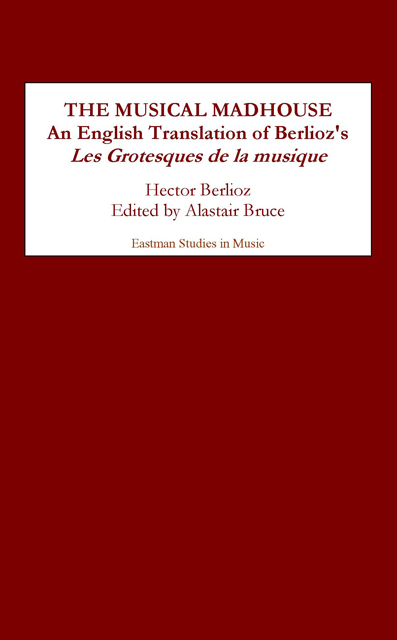The song of cockerels—The cockerels of song
Published online by Cambridge University Press: 21 March 2023
Summary
“What do you think of vocal trills in dramatic music?” I was asked one evening by a music-lover who had just had his eardrums shattered by a prima donna.
“Vocal trills sometimes produce a good effect, as an expression of carefree joy or as a musical imitation of polite laughter; but when they’re employed without good reason and trotted out at the end of every phrase in music that’s meant to be serious, they grate on my nervous system and drive me wild. They remind me of the cruelties I used to inflict on cockerels in my childhood. The triumphal song of the cockerel annoyed me then almost as much as the jubilant trill of the prima donna makes me suffer today. And there have been many occasions when I have lain in ambush, waiting for the moment when the strutting bird, flapping its wings, would begin the ludicrous squawking that is absurdly described as its ‘song’, in order to bring it to an abrupt halt, often by striking it dead with a stone.”
Later I cured myself of this bad habit, and confined myself to cutting short the cockerel’s squawking with a gunshot. Today the blast of a 48– millimetre cannon would scarcely suffice to express the horror the cockerels of song frequently inspire in me with their trills.
The vocal trill is on the whole as ridiculous, loathsome and stupidly clownish as the flattés and martelés and other horrors with which Lully and his contemporaries saturated their lamentable melodies. When a trill is performed on a high note by some kinds of soprano voice it becomes frantic, demented and nasty (although nowhere near as much as the listener), and a 110–millimetre cannon would not be big enough to deal with it.
Trills performed by deep voices, on the other hand, especially on low notes, are irresistibly comic—they produce a sort of gurgling rather similar to the sound of water running from a badly made gutter. Musicians with any sense of taste use them very little. The ugliness of this effect of the human voice is beginning to be recognised. It already seems so ridiculous that singers produce it with an air of committing a shameful deed. One blushes for them. In two or three hundred years it will have disappeared altogether.
- Type
- Chapter
- Information
- The Musical MadhouseAn English Translation of Berlioz's <i>Les Grotesques de la musique</i>, pp. 112 - 114Publisher: Boydell & BrewerPrint publication year: 2003



